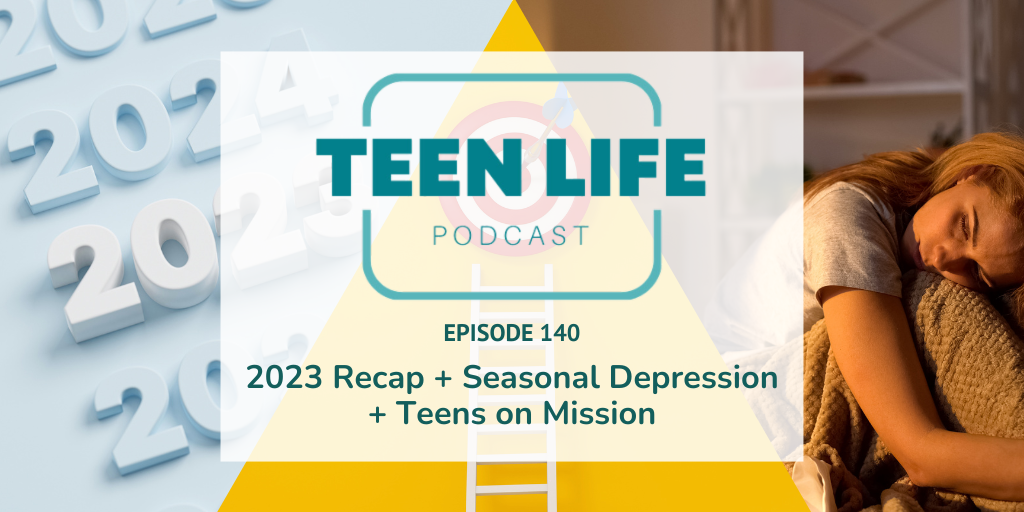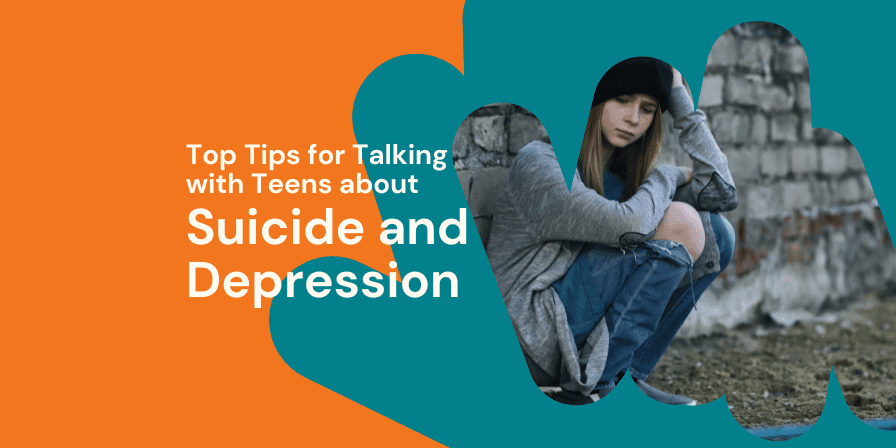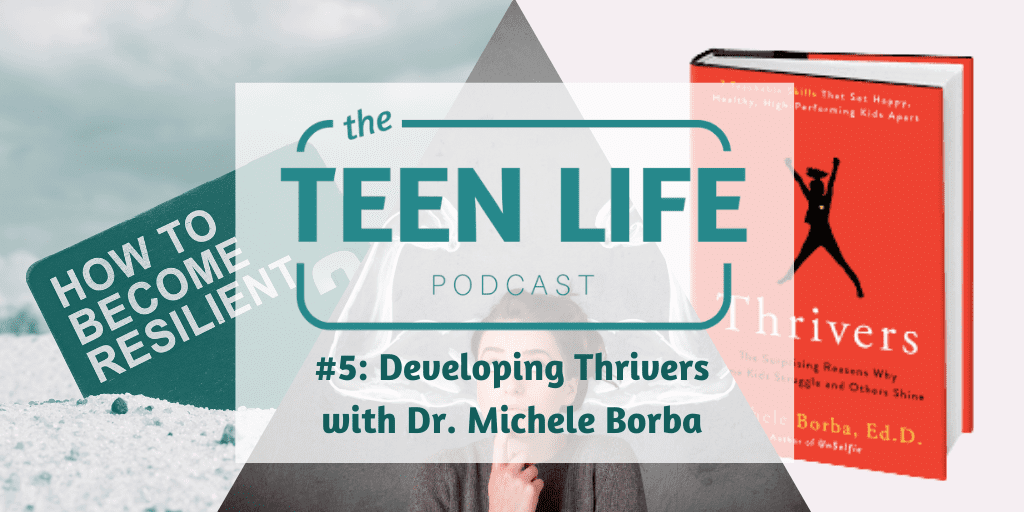
Seasonal Depression + Teens on Mission | Ep. 140
Podcast: Play in new window | Download
Teens with a purpose, seasonal depression and the best of 2023.
The fall and winter seasons bring more than just chilly weather and cozy holidays. For some, these months usher in a condition known as Seasonal Affective Disorder (SAD), triggered by reduced daylight. Recognizing the signs is crucial: shifts in mood, energy levels, eating habits, and concentration are all indicative of SAD. But there are ways to combat it.
Maximizing exposure to daylight through walks or special bulbs helps, as does talking about your feelings with friends, family, or a therapist. If you are experiencing symptoms of seasonal depression, you are not alone! Listen for more ways to manage symptoms and get help when you need it.
Amidst these seasonal shifts, finding purpose can be a beacon of light. Encouraging teens to define their missions, whether tackling societal issues or personal growth, becomes vital for mental health. Aligning time and energy with these missions, even if intimidating, fosters resilience. It’s about the journey, not just the destination.
Parents, educators, and mentors can guide this journey by asking teens about their aspirations and supporting them in crafting their missions. After all, it’s never too early to have a mission!
Teens on mission are teens with a purpose
So, how do we guide teens in uncovering their purpose? Or better yet, how can we infuse purpose into our families and classrooms?
Let’s start by painting a canvas of possibilities and inviting teens into a story.
It’s about asking those pivotal questions. What issue do they want to tackle? Homelessness, loneliness, insecurity, or maybe unpreparedness? These inquiries open doors to missions—temporary quests that drive change and impact lives.
Missions aren’t etched in stone.
They’re adaptable, and that’s the beauty of it. Having a purpose, however, is the cornerstone of mental health—a compass that guides actions and decisions.
For teens and adults alike, aligning time and energy with your mission or purpose is a golden rule. If it’s a tad scary, well, that’s often a sign that you’re on the right track. The destination is important, but the real magic lies in the journey—the effort and the strides taken toward that goal.
So, what does having a purpose look like for teens?
It’s a kaleidoscope of possibilities. Some examples could be:
- Love god, love others
- Learn and have fun
- Prepare for the future (college, job)
- Become a better writer
- Pass the AP test
It’s amazing when teens zero in on the purpose they want to pursue long-term in their lives, but for most, it’s less intimidating to set a short-term goal.
But living on purpose demands strategy.
Ask yourself—what’s needed to accomplish this mission? Sometimes, it means letting go of things that don’t align with the mission’s trajectory. It’s about priorities and focus.
You’re never too young to have a mission. You’re the architect of your future, and a mission is like the blueprint. Want a fun exercise? Picture your life in 5 or 10 years. Where do you see yourself amidst life’s ups and downs?
Helping teens find their purpose is about empowering teens to dream, discover, and conquer. It’s about nurturing a generation driven by intent and passion.
So, parents, educators, mentors—let’s be the guiding stars. Engage in conversations about aspirations, nudging teens toward their missions. It’s a journey, an exploration of self-discovery.
And teens, if you’re feeling a tad lost or uncertain, that’s alright. The path to finding your mission isn’t always straightforward. It’s about trying on different hats, exploring varied interests, and figuring out what truly resonates.
As we embark on this mission-driven journey, remember—it’s not just about reaching the finish line. It’s about the grit, the determination, the stories woven along the way. It’s about waking up each day with a fire in your belly, fueled by purpose.
Let’s champion teens with a purpose. Let’s paint a world where passion meets action, where dreams aren’t just dreams but blueprints for change.
In this episode, we mentioned or used the following resources about seasonal depression and teens on mission.
- Teen Life Dinner Video: Empowering Students at Boswell HS
- Teen Life Podcast: Roman Empire + Eras Tour | Girl Math | Barbenheimer | Depression
- Teen Life Blog: What Are Family Values and Why Do They Matter?
- Nemours TeensHealth: Seasonal Affective Disorder (SAD)
- Podcast: How You and Your Family Can Live a Richer Story in 2020 | Family On Mission with Sarah Brooks
- Podcast music by Luke Cabrera & Tobin Hodges
Have a question?

Karlie Duke
Communications Director

Tobin Hodges
Program Director

Caleb Hatchett
Podcast Host
Caleb Hatchett | Podcast Co-Host
Caleb loves helping teenagers take ownership of their faith and relationships. He graduated from Abilene Christian University with a degree in Youth and Family Ministry and is currently Student Ministry Director at Jenks Church in Oklahoma.
Tobin Hodges | Program Director
Tobin’s entire career has been centered around students and teens from all walks of life. He has a passion for helping teens be their best selves. As Program Director, he loves working directly with school staff and students through Teen Life Support Groups. Tobin has a Bachelor’s Degree in Music from Texas Tech University.
Karlie Duke | Director of Communications
Karlie has always had a heart for teenagers. Through her role at Teen Life, she loves to showcase the amazing stories coming out of Support Groups, but she is especially passionate about helping adults and teenagers find connection. Karlie has a BS in Communications with a minor in Family Studies from Abilene Christian University.

























